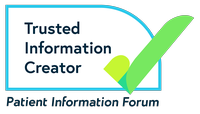Understanding blood cancer
Blood cancers start in the bone marrow – this is where your body produces blood cells. If you have a blood cancer, it means certain blood cells don’t develop properly, reproduce too much, or both.
Your blood is made up of different types of cells, including:
- red blood cells, which carry oxygen
- white blood cells, which fight infections
- platelets, which help blood to clot.
All types of blood cell originally come from stem cells. Stem cells are important because we need to replace our blood cells quickly and often, which we cannot do without stem cells. As stem cells divide and mature, they could develop into any type of blood cell.
But problems in this process can cause blood cancer. Different types of blood cancer depend on when and how these problems happen. You might hear these problems called ‘differentiation’.
Watch our video below to learn more about what blood cancer means.
How does blood cancer develop?
If there’s a problem with the way your stem cells divide and mature to create different types of blood cells, your body might produce lots of ‘immature’ blood cells. This means they don’t develop fully and stay in their early stages of growth.
If they are immature and not properly formed, these blood cells:
- cannot do their job properly, like carrying oxygen or fighting infection
- can ‘clog up’ your bone marrow, which stops it from making other types of blood cell and letting them do their jobs.
Once blood cancer starts to develop, doctors can categorise it into a group based on the type of cancer.
Is blood cancer common?
Blood cancer affects lots of people every year. As of February 2025, there are roughly 280,000 people in the UK living with blood cancer.
Roughly every 13 minutes, someone in the UK gets diagnosed with a type of blood cancer. That’s around 110 people per day, or 40,000 people per year.
You are not alone – lots of us go through difficult feelings and experiences, from diagnosis to treatment and recovery.
Different types of blood cancers
Our information covers different types of blood cancers within some main groups. You can find out about the most common conditions within each group.
Use the links to learn more about your diagnosis, or the diagnosis of someone close to you:
What is a leukaemia?
+
-
Leukaemia is a type of blood cancer that mainly affects your white blood cells and bone marrow. As these cells divide too quickly without developing properly, they weaken your immune system and ability to fight infections.
Many types of leukaemia are either ‘acute’ or ‘chronic’, depending on how they behave:
- Acute leukaemias – These generally develop very quickly and need strong treatment right away.
- Chronic leukaemias – These usually progress more slowly and might not need immediate strong treatment.
We have information pages on the four main types of leukaemia:
What is lymphoma?
+
-
Lymphoma is a type of blood cancer that affects your lymphatic system. This is an important part of your immune system that:
- produces and transports white blood cells around your body
- removes waste products from your blood.
Lymphoma can develop in many parts of your body. It’s common in the lymph nodes, bone marrow, blood, spleen and other organs.
We have information pages on the two main types of lymphoma:
What are myelodysplastic syndromes (MDS)?
+
-
Myelodysplastic syndromes are rare blood cancers that cause your bone marrow to produce too many abnormal and unhealthy blood cells. When your body notices these blood cells, it tries to destroy them.
We have an information page on myelodysplastic syndromes.
What is myeloma?
+
-
Myeloma is a blood cancer that affects a certain type of white blood cell called plasma. You make plasma cells in your bone marrow – they produce antibodies which help fight infection.
Myeloma causes plasma cells to develop and reproduce too quickly. You might also hear it called ‘multiple myeloma’.
We have an information page on myleoma.
Finding support for blood cancers
Our pages offer information about different types of blood cancers, as well as stem cell therapies and other treatments which doctors might offer.
Other organisations and charities offer advice and support for you, or anyone close to you. To get support, you can visit:
For support for children and young people, you can visit:
